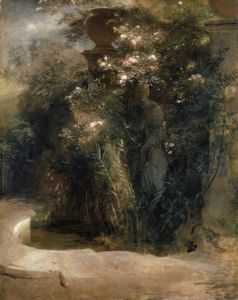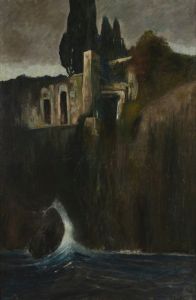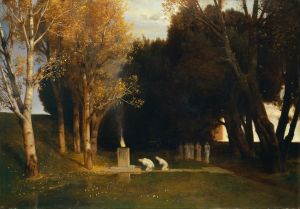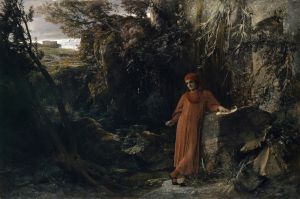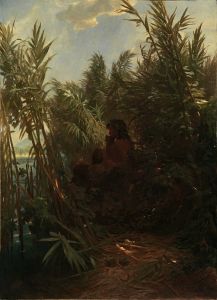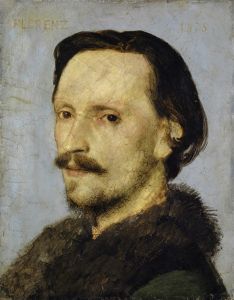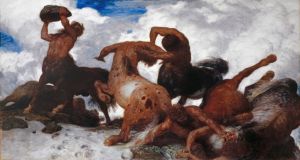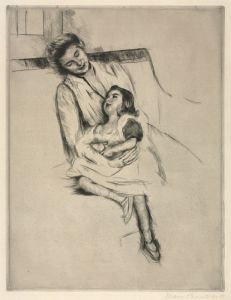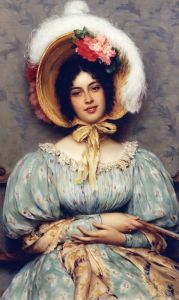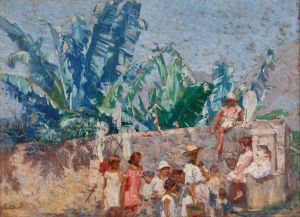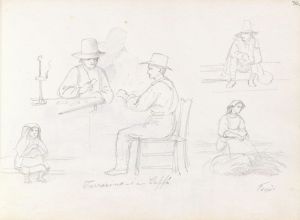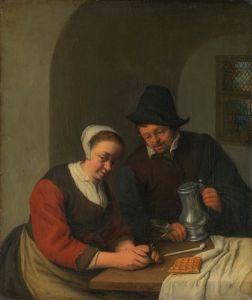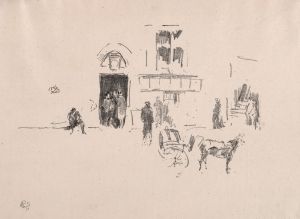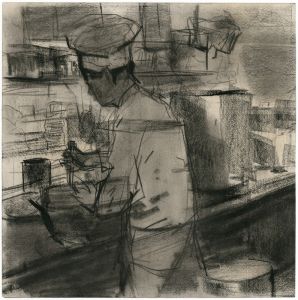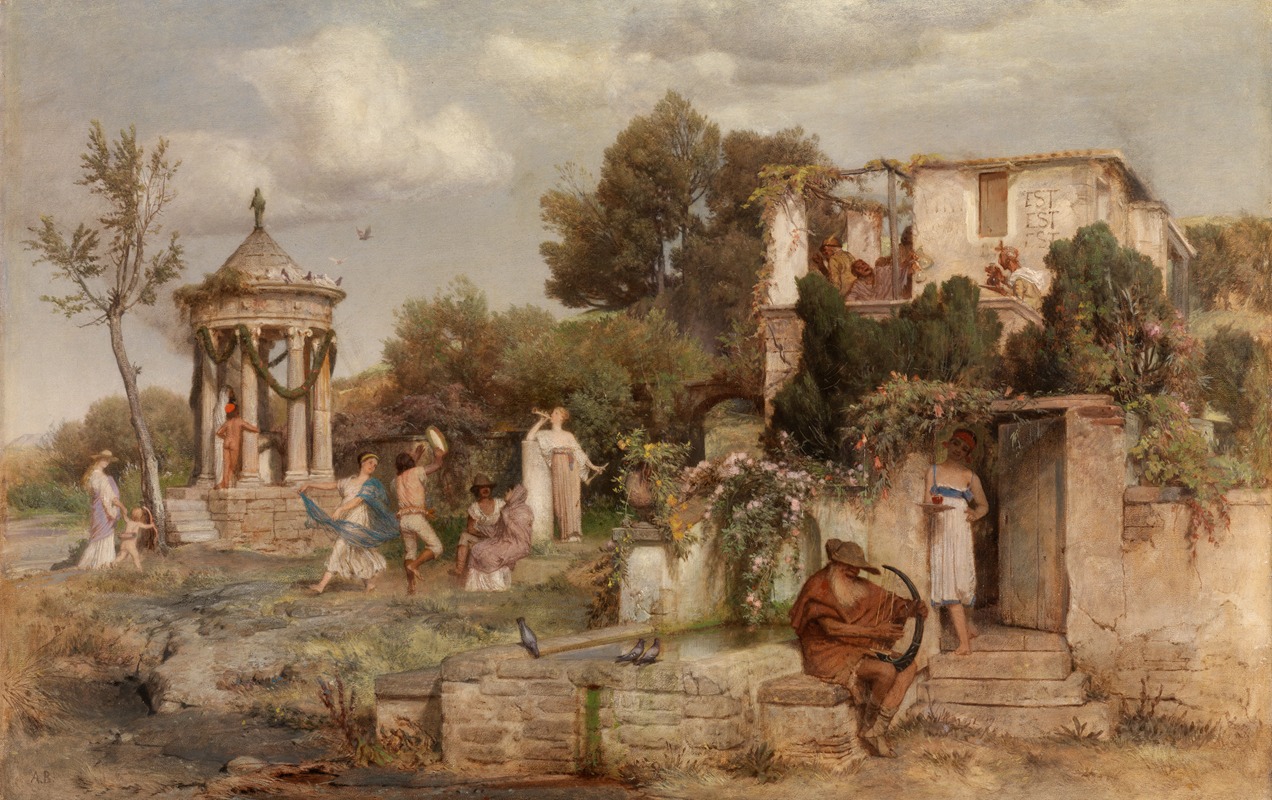
Roman wine tavern
A hand-painted replica of Arnold Böcklin’s masterpiece Roman wine tavern, meticulously crafted by professional artists to capture the true essence of the original. Each piece is created with museum-quality canvas and rare mineral pigments, carefully painted by experienced artists with delicate brushstrokes and rich, layered colors to perfectly recreate the texture of the original artwork. Unlike machine-printed reproductions, this hand-painted version brings the painting to life, infused with the artist’s emotions and skill in every stroke. Whether for personal collection or home decoration, it instantly elevates the artistic atmosphere of any space.
Arnold Böcklin was a Swiss symbolist painter known for his imaginative and often fantastical works. He was born on October 16, 1827, in Basel, Switzerland, and became one of the most prominent artists of the 19th century. Böcklin's work is characterized by its vivid imagination, mythical themes, and a unique blend of realism and fantasy.
"Roman Wine Tavern" is one of Böcklin's lesser-known works, and unfortunately, there is limited information available about this specific painting. Böcklin's oeuvre often explored themes of mythology, nature, and the supernatural, and his style was marked by a meticulous attention to detail and a rich, vibrant palette. His paintings frequently depicted serene landscapes, mythical creatures, and allegorical scenes that invited viewers into a world of fantasy and introspection.
Böcklin's work was heavily influenced by his travels in Italy, where he was inspired by the country's classical heritage and natural beauty. This influence is evident in many of his paintings, which often feature Italian landscapes and classical architectural elements. It is possible that "Roman Wine Tavern" reflects some of these influences, given its title, though specific details about the painting's composition and themes are not well-documented.
Throughout his career, Böcklin was associated with the Symbolist movement, which sought to express ideas and emotions through symbolic imagery and themes. His work often conveyed a sense of mystery and otherworldliness, inviting viewers to explore the deeper meanings behind the images. Böcklin's paintings were known for their dreamlike quality, blending elements of reality with fantastical and mythical motifs.
Despite the lack of detailed information about "Roman Wine Tavern," Böcklin's broader body of work has been influential in the development of modern art. His unique approach to symbolism and his ability to evoke emotion and imagination through his paintings have left a lasting impact on the art world. Böcklin's work has been celebrated for its ability to transcend the ordinary and transport viewers to a realm of myth and fantasy.
Arnold Böcklin passed away on January 16, 1901, in Fiesole, Italy, leaving behind a legacy of art that continues to inspire and captivate audiences. His paintings are housed in various museums and collections around the world, where they continue to be studied and appreciated for their artistic and historical significance.
In summary, while specific details about "Roman Wine Tavern" are scarce, Arnold Böcklin's reputation as a master of symbolism and his influence on the art world are well-established. His work remains a testament to the power of imagination and the enduring appeal of mythological and fantastical themes in art.





